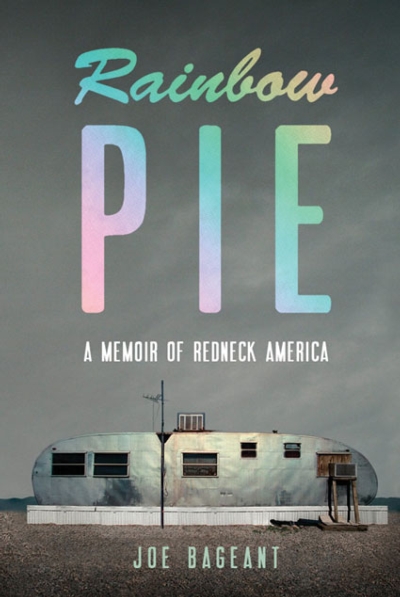
Rainbow Pie: A memoir of redneck America by Joe Bageant (Portobello)
For most of us, “redneck” is a term dripping with contempt. It conjures up the image of a bigoted, stupid, poor white American, shotgun in tow, nibbling on straw while slagging off black people in a thick, Southern drawl. As Joe Bageant reveals in his vivid, passionately argued memoir-cum-polemic, “redneck” had none of these negative connotations for his Scots-Irish relatives as he grew up in postwar rural Virginia. It was only a pejorative to “urbanites who think we all chew tobacco at the dinner table and nurse our babies on cheap beer”.
Bageant’s voice is authentic, partly because the book is written in such a folksy manner it feels as though he’s chatting to you in a Virginia tavern. But above all it’s because his argument is deeply rooted in his own experiences. He grabs liberal America by the lapels – even assailing icons like Franklin Roosevelt – and he is right to do so. Liberal contempt for the sort of communities Bageant grew up in is real, and the populist right have shamelessly tapped into it. When George Wallace, the segregationist Democratic Governor of Alabama, ran for President in 1968, he struck a chord by savaging “limousine liberals”. Denunciations of the “liberal elite” have become a staple of right-wing propaganda. And Barack Obama did himself no favours during the 2008 presidential campaign when he claimed disappearing jobs had led small-town communities to “get bitter, they cling to guns or religion or antipathy to people who aren’t like them”.
Bageant challenges liberal prejudices by painting a picture of a world that has been lost. The community he knew was based around small farmers, who valued neighbourliness and a form of solidarity. But it’s not a glorified portrait: well, certainly not as far as the average metropolitan progressive is concerned. This was a world in which the neighbour’s dog was shot if it strayed on your land. The work was backbreaking: some worked themselves to death. There were hints of racism, although encounters with African-Americans were almost non-existent. And Bageant is quite clear that many of the values of these communities evolved naturally into the conservative movement we know today.
The left has a long tradition of celebrating the progressive nature of industrialisation: Karl Marx, after all, had no time for the “idiocy of rural life”. Bageant, on the other hand, mourns the loss of tightly-knit rural communities as folk left to work in monotonous, dehumanising jobs. Meanwhile agri-corporate giants bought up the land, sprayed it with toxic pesticides and trashed the fabric of local communities. Consumerism became almost a religion, promoting unhealthy diets that fuelled a boom in obesity (indeed, his home state is the fattest in a nation not renowned for its slimline figures).
Not all of his analysis is to be commended. The mass entry of women into the labour force was, on balance, a negative as far as Bageant was concerned. It was driven by economic necessity, had a detrimental impact on families, and women didn’t enjoy the monotonous jobs they were driven into. A critique of the insecure, low-paid, dehumanising jobs in which women are concentrated would be welcome; but it is lacking here.
Bageant’s look at the legacy of US rural decline has clear parallels with Britain. He’s not calling for the clock to be turned back: “OK, I’ll say it so you won’t have to. There ain’t no goin’ backwards. We certainly can’t all take up horse farming or go to sowing lespedeza hay and oats.” His point is that what has replaced this world is, in many ways, worse: lonelier, more dehumanising and less fulfilling. Similarly, it is not to glorify the backbreaking industrial jobs that disappeared in Britain to point out that they were replaced with fewer, lower status, less well paid service sector jobs.
Bageant’s America is gone and it isn’t coming back. He’s gone too – he died earlier this year from cancer. But unless progressives can find a way to prise millions of poor white Americans from the grasp of the populist right, the future of the United States could be bleak indeed. Bageant’s eloquent, impassioned polemic is one starting point for those American liberals who are willing to discard their prejudices and are determined to win “rednecks” back.

